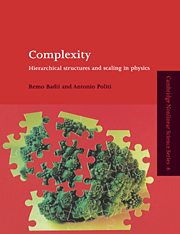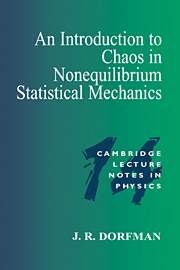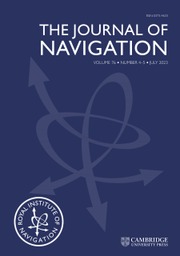Complexity
This is a comprehensive discussion of complexity as it arises in physical, chemical, and biological systems, as well as in mathematical models of nature. Common features of these apparently unrelated fields are emphasised and incorporated into a uniform mathematical description, with the support of a large number of detailed examples and illustrations. The quantitative study of complexity is a rapidly developing subject with special impact in the fields of physics, mathematics, information science, and biology. Because of the variety of the approaches, no comprehensive discussion has previously been attempted. This book will be of interest to graduate students and researchers in physics (nonlinear dynamics, fluid dynamics, solid-state, cellular automata, stochastic processes, statistical mechanics and thermodynamics), mathematics (dynamical systems, ergodic and probability theory), information and computer science (coding, information theory and algorithmic complexity), electrical engineering and theoretical biology.
- Mathematical tools presented in uniform, self-consistent way
- Rich collection of pictures and fully worked-out examples, many of which contain new analytical or numerical results
- Physical investigation of formal languages and automata presented for the first time
Reviews & endorsements
"The approach throughout is no-nonsense...for a mathematically mature reader determined to ponder what complexity might mean, this book will provide some rewarding exercise." Nature
"The book presents a comprehensive review of the results which have been achieved in the understanding of the phenomenon of complexity and its quantitative description." Mathematical Reviews
"...focused on the formal description of complex systems...the authors discuss a great number of ideas developed in the field of complex systems and complexity....Those working on complexity theory will find this book an invaluable source since it offers a great number of stimulating ideas and guidance for future research." Journal of Statistical Physics
"It is the definitive source for complexity in physical systems. Scientists and graduate students working or interested in this new field, especially physicists, mathematicians and theoretical computer scientists will find this book of value." Pageoph
Product details
March 2011Adobe eBook Reader
9780511881077
0 pages
0kg
56 line figures 5 halftones 1 table
This ISBN is for an eBook version which is distributed on our behalf by a third party.
Table of Contents
- Part I. Phenomenology and Models:
- 1. Introduction
- 2. Examples of complex behaviour
- 3. Mathematical models
- Part II:
- 4. Symbolic representations of physical systems
- 5. Probability, ergodic theory, and information
- 6. Thermodynamic formalism
- Part III. Formal Characterization of Complexity:
- 7. Physical and computational analysis of symbolic signals
- 8. Algorithmic and grammatical complexities
- 9. Hierarchical scaling complexities
- 10. Summary and perspectives.





